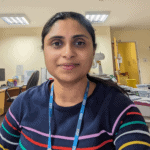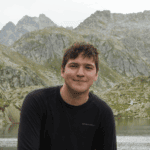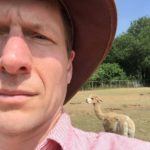-
Asked by whew520sura on 28 Apr 2025.
-
Martin McCoustra answered on 28 Apr 2025:
That’s one of the drivers for what I do. I want to discover new stuff that no-one knows about. For example, we were the first to show that water molecules can move around on dust surfaces at temperatures as low as 20 K… 20 degrees above absolute zero. This is important in cold space environments.
-
-
Ioanna Bezirtzoglou answered on 19 May 2025:
not yet – but hopefully in the next few months I will !
-
Camilla Cassidy answered on 5 Jun 2025:
I helped discover how climate change affects animals in the sea bed and their environment!
When the world around them changes, animals change how they behave. For example, when there is less oxygen and more carbon dioxide, worms don’t move about as much. They make smaller burrows. These burrows play an important role in the chemistry of the sea bed. My research showed that different animals reacting in different ways has an effect on the whole environment through mechanisms like this.
-
Charlotte Slade answered on 1 Jul 2025:
This is my absolute favourite question, because the answer is “yes,” but it might be a little different from how you see it in the movies!
Discovery in science is less like one person suddenly finding a hidden treasure chest, and more like a huge team of explorers working together to draw a map of a new world. Every scientist gets to draw a little piece of that map.
My special corner of the map was in an area called materials science. I spent my time exploring the surfaces of things on a scale so tiny you’d need an incredibly powerful microscope just to see it. Think about the special coating on a non-stick frying pan that stops your eggs from sticking, or the screen on your phone that responds to your touch. My work was all about figuring out the rules for how to build those kinds of smart surfaces, one atom at a time.
My team and I discovered a new “trick” for arranging atoms on a surface in a specific pattern that no one had managed to create before. It wasn’t a big, flashy explosion. It was a quiet moment, looking at data on a screen and realising, “Wait a second… that’s not supposed to be possible. We’ve found a new path.”
Now, that little discovery alone didn’t instantly create a new gadget. But it’s a vital clue. It’s a new road on the map that other scientists and engineers can now use. They can take our “trick” to help them design things like better medical sensors that give doctors clearer information, or even more efficient solar panels.
So, yes, I have discovered new things! But the most exciting part is knowing that my small discovery becomes a tool for the next explorer. Science is the ultimate team sport, and the amazing thing is, the map is still being drawn.
-
Kirsty Ross answered on 11 Jul 2025:
I discovered that very tiny amounts of a vaccine I designed can generate an immune response in the blood as well as on the mucosal surfaces of the lungs and nose, as long as you deliver it nasally (like the kid flu vaccine). I’ve also worked together with undergrad computer science students to build a tool that will show you where your academic work has been mentioned on 35 language versions of Wikipedia.
Related Questions
if scientists were not able to discover new things would AI take over jobs and would they be able to replace the same
what is the craziest/ most unexpected outcome you have had?
what would you like to descover one day
what is the most amazing thing you found out in your job?
Why do you use frogs for your work







Comments
aureliabrzezowska commented on :
I probably have, albeit in cyber your main focus is immediate mitigation and fixing rather than focusing on new discoveries!